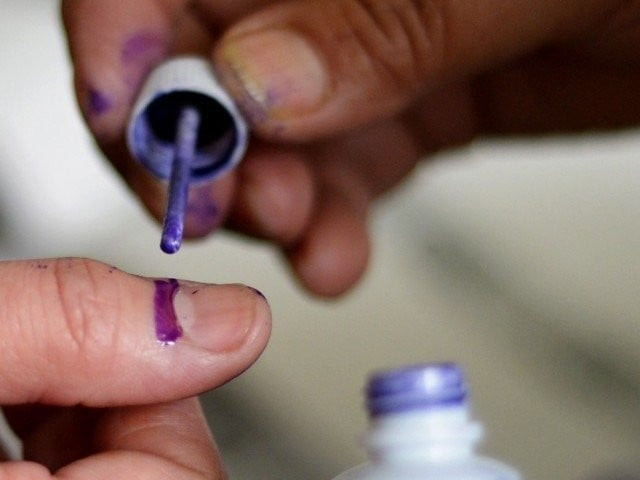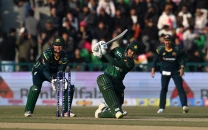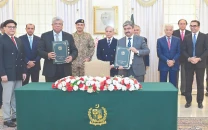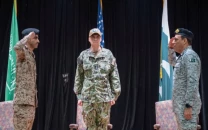Looking forward: Call for empowering local govts
Study details nature of political association and voting behaviour in rural area

Study details nature of political association and voting behaviour in rural area. PHOTO: AFP
Speaking at the launch of a study “Local Bodies’ Elections and the Vote-Exchange: Implications for Democratic Decentralisation”, they also called for empowering the elected local bodies that would come into being as a result of the elections.
The study, co-authored by Dr Sajid Amin Javed and Asadur Rehman, predicted a ruling party victory in Punjab. It also said that independent candidates would perform strongly.
The authors said introduction of party-based local bodies elections can only contribute to the social welfare of the society if the choice of candidates is not limited to “winning horses” only.
Javed said evidence suggested that 40 per cent voters vote based on “vote-block” and 90 per cent people enter a vote block based on rivalry, prestige, security and self-interest. He said only 10 per cent care about the “collective gain” while making a decision of voting in local bodies elections.
Member National Assembly Romina Khurshid Alam expressed hope that communication gap between the people and the leadership would be bridged by the local bodies elections. “Only the candidates who deliver will be elected now. People are now more aware,” she said.
Dr. Zubair iqbal Ghouri, an associate professor of social sciences at Bharia University Islamabad, said at present the institutions were not gaining grounds due to lack of dispensation at the grassroots level. “Why are our villages not developing like in the rest of the world? Why the political elders ignore voters right after the election day? Why there is no long term planning?” he said.
Head PIDE School of Public Policy Dr Idrees Khawaja said bondage between candidates and the voter was not really strong. “Once the candidates are elected, they cannot be held accountable until the next elections. Also because of rigging, a perception is gaining grounds that votes do not count.
“The candidates on the other hand, look forward to recover the expenditures they incurred during the election campaign. Financing of the political parties should be studied more deeply. Due to lack of institutional mechanism, voters have to rely on influence to seek favors,” Khawaja said.
The study details the nature of political association in rural area and how they play a role in carving out voting behavior. It said economic modernisation leads to political and social modernisation. The authors said economic development needed to be made inclusive.
Javed concluded that local bodies’ government was the best form of representative democracy, but to reap gains from democratic decentralisation, informational, cultural and economic dependencies need to be broken in order to ensure fair association between the voter and the candidate.
Published in The Express Tribune, November 1st, 2015.



















COMMENTS
Comments are moderated and generally will be posted if they are on-topic and not abusive.
For more information, please see our Comments FAQ